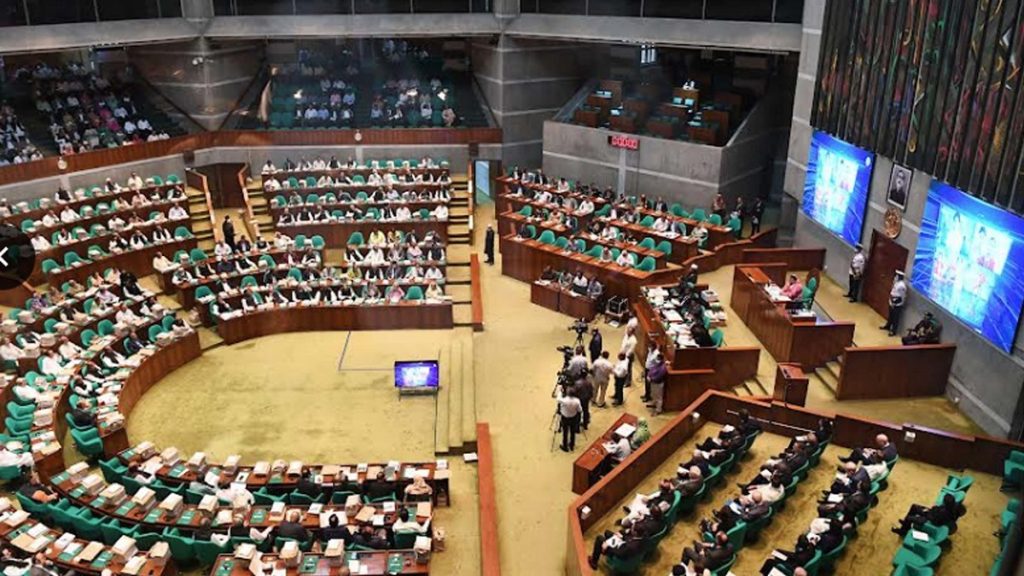The national budget for FY 2024-25 has been declared, worth Tk 7,970 billion. It aims to achieve economic sustainability, reduce inflation to 6.5 percent, and increase GDP growth to 6.75 percent.
The budget is 352.15 billion larger than the FY 2023-24 budget and 825.82 billion larger than the revised budget of that financial year.
In this financial year, the operating turnover cost is expected to be 4689.83 billion BDT, which is 7.5 percent higher than the budget for the last financial year.
On the other hand, the total development expenditures budgeted at 2814.53 billion BDT, only 38.71 billion greater (1.40 percent) than the previous budget.
The approximated revenue income is enhanced by 410 billion BDT (8.02 percent) compared to the last FY budget and 629.99 billion BDT (13.18 percent) regarding the revised budget. The sum of total revenue expenditure is assumed at 5410 billion BDT for FY 2024-25. The total revenue income from NBR is budgeted at 4800 billion BDT, 11.63 percent and 17.07 percent greater than the budget and revised budget of the FY 2023-24, respectively.
The total budget deficit in the last financial year was BDT 2617.85 billion, which is now BDT 2560 billion for this financial year. Tk 9510 billion budget deficit is proposed to be funded by external sources, and 1609 billion from internal sources.
Though external financing is important for the economy, the amount is now reduced. However, we need stronger external sources as the country cannot rely solely on domestic sources.
Extreme dependency on domestic loans can hamper private investment, creating liquidity crises and inflation.
Implementing the budget can be tough if revenue generation and financing from external sources are not done correctly. Therefore, the steps taken by the administration should be appropriately maintained.
In FY 2024-25, the budget for social infrastructure is 2065.69 billion, which is 25.92 percent of the total budget. It is to be noted that the budget in this segment has increased in both amount and percentage.
Though the amount was slightly reduced in the material infrastructural segment, it increased in the general service segment.
In terms of direct tax, the tax rate increases to 30% from 25%, leaving the tax-exempt limit the same as before. Another positive aspect of the budget is that the tax rate is increased for high-income people, which will help reduce income-level discrimination in the country.
The tax rate for individually owned businesses is reduced to 2.5 percent. However, it has increased by 5 percent, making it 20 percent for cooperative businesses.
Changes in direct tax, indirect tax, and tax management will positively affect lifestyle and inflation. The budget in the social segment is satisfactory, which will enhance people’s quality of life. The proposal about double selling in the open market is a good proposal in the budget.
Proposals for tax benefits and rebates are being considered for new ventures in agriculture, the industrial sector, and artificial intelligence. These will definitely enhance the growth of those industries, including the pharmaceutical, packaging, loom, electrical products, and motorcycle industries.
